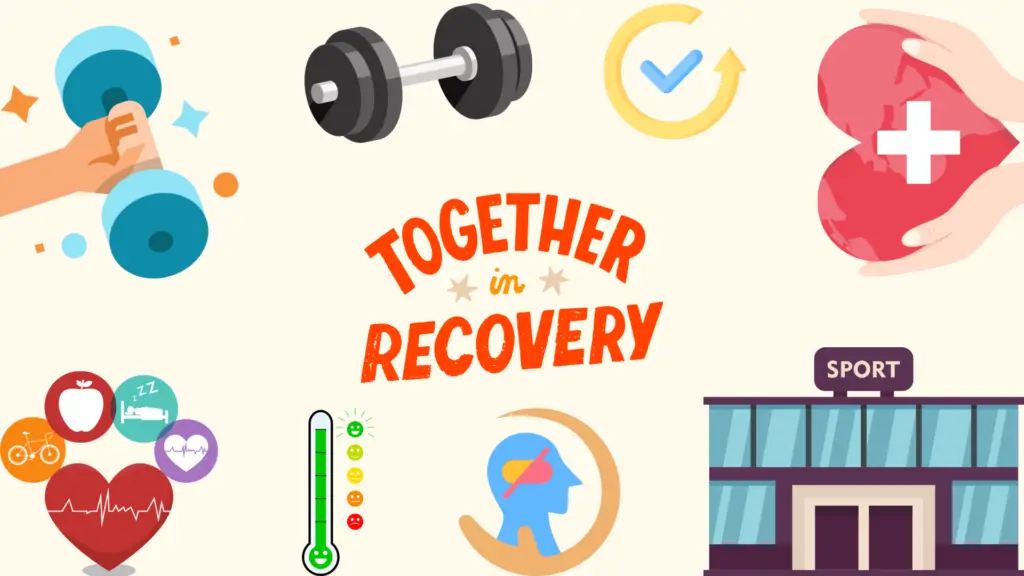Recovery from addiction is a multi-faceted journey that requires a strong foundation built on various elements. One of the most effective tools in this journey is incorporating fitness into your daily routine. Regular physical activity not only supports physical health but also plays a critical role in mental and emotional well-being, which are crucial for sustaining long-term recovery. By understanding and leveraging the benefits of fitness, you can build a resilient foundation for your recovery journey. Sharp Mindset offers these tips.
Boosting Self-Esteem and Confidence
Engaging in regular fitness activities can significantly enhance self-esteem and confidence. As you set and achieve fitness goals, whether big or small, you gain a sense of accomplishment that reinforces your self-worth. This positive reinforcement is vital in addiction recovery, where rebuilding self-esteem is often a necessary step. Additionally, seeing physical improvements in your body can boost your confidence, making you feel more capable and empowered in other areas of your life.
Affordable Fitness Options
Staying fit does not require an expensive gym membership. You can incorporate physical activity into your routine through simple and cost-free methods. Biking to work or taking the stairs instead of the elevator is an excellent way to get your heart rate up. Similarly, going for a walk during your lunch break helps you stay active without any additional expense. These small changes significantly impact your overall fitness and easily fit into a busy schedule, promoting a healthier lifestyle without financial strain.
Combating Depression and Mental Health Issues
Physical activity is a powerful tool in managing depression and other mental health issues. Exercise triggers the release of endorphins, which are natural mood lifters. These endorphins help reduce feelings of depression and anxiety, which are common challenges in addiction recovery. Regular fitness routines can provide a natural and effective way to combat these mental health issues, offering a healthier alternative to substance use and helping to stabilize mood and emotions over time.
Providing Purpose and Direction
Incorporating fitness into your recovery plan can provide a renewed sense of purpose and direction. Setting fitness goals gives you something positive to focus on and work towards. This sense of purpose is crucial in recovery, as it can fill the void left by addiction. By consistently working towards these goals, you develop a structured routine that can bring order and stability to your daily life. This direction can help keep you motivated and committed to your recovery journey.
Improving Social Connections
Participating in fitness activities can also enhance your social connections. Joining a local sports team, attending fitness classes, or simply exercising with a friend can create opportunities to build new, positive relationships. These social interactions are beneficial as they provide support and encouragement, which are important for maintaining sobriety. Building a network of supportive friends through fitness can help you stay accountable and connected, reducing feelings of isolation often associated with addiction recovery.
Reducing Inflammation
Regular physical activity can help reduce inflammation in the body, which is particularly beneficial in recovery. Inflammation is linked to various health issues, including chronic pain and heart disease. By engaging in consistent exercise, you can lower inflammation levels, thus improving your overall health. This reduction in inflammation not only helps in physical recovery but also enhances your body’s resilience against stress and other recovery challenges, making you stronger and healthier.
Enhancing Lung Function
Exercise plays a crucial role in improving lung function, which can be compromised due to substance use. Activities such as aerobic exercises, including running, cycling, and swimming, can strengthen your lungs and improve your breathing capacity. Enhanced lung function means better oxygenation of the body, which supports overall health and vitality. This improvement is essential in recovery, as it boosts your energy levels and helps your body repair and regenerate more effectively.
Incorporating fitness into your addiction recovery plan offers numerous benefits that extend beyond physical health. It fosters self-esteem, combats mental health issues, provides a sense of purpose, and more. By embracing fitness, you can build a resilient foundation that supports a healthy and sustainable recovery journey. Prioritizing physical activity will not only help you stay sober but also enrich your life with positive habits and a renewed sense of well-being.
For helpful health and fitness content, visit Sharp Mindset today!

